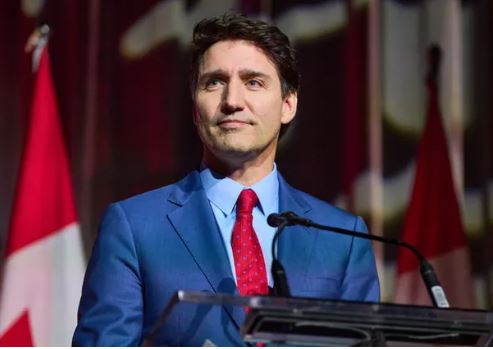Recent reports indicate that Canadian Prime Minister Justin Trudeau is poised to announce his resignation, potentially as early as Monday . This anticipated decision comes in the wake of increasing pressure from within his own Liberal Party, exacerbated by significant resignations of key figures such as Finance Minister Chrystia Freeland and Housing Minister Sean Fraser. The political landscape has been further complicated by the impending inauguration of U.S. President-elect Donald Trump, who has threatened to impose steep tariffs on Canadian imports, which could have dire implications for Canada's economy .
The source requested anonymity because they were not authorized to speak publicly.
Trudeau's departure would leave the party without a permanent head at a time when polls show the Liberals will badly lose to the official opposition Conservatives in an election that must be held by late October.
Sources say that they did not know definitely when Trudeau would announce his plans to leave but said they expect it would happen before a emergency meeting of Liberal legislators on Wednesday.
The missive follows a recent virtual meeting during which 51 Liberal members of Parliament from Ontario discussed Trudeau’s leadership. After the gathering, the party’s largest caucus group relayed a message to the prime minister: Resign.
“We’ve reached a breaking point,” said one Liberal who attended the meeting, and was granted anonymity to speak freely. “There’s a critical mass now that has been reached and that was not in place before.”
Under Trudeau, the party’s support has collapsed to 16%, but it could recover to over 20% under Freeland. Other contenders like former Bank of Canada (and Bank of England) Governor Mark Carney, Minister of Foreign Affairs Melanie Joly, Freeland’s replacement as Finance Minister Dominic LeBlanc, Innovation Minister François-Philippe Champagne and Transport and Internal Trade Minister Anita Anand, an Indo-Canadian, hardly move the needle in a positive direction for the party. There may be contenders outside the Trudeau government, including former British Columbia Premier Christy Clark.
The calls for Trudeau's resignation stem from a marked decline in his popularity following various controversies and criticisms regarding government spending and policy handling. Additionally, the recent departures of prominent party members have intensified scrutiny on Trudeau's leadership capabilities. New Democratic Party leader Jagmeet Singh has publicly stated his support for a no-confidence motion against Trudeau, reflecting growing dissent within the opposition ranks . If Trudeau steps down as party leader—though it remains uncertain whether he will resign as Prime Minister—this would precipitate a leadership contest within the Liberal Party.
This potential transition in leadership arrives at a critical juncture for Canada. The forthcoming election year heightens the stakes for both parties involved. As concerns surrounding economic stability loom large due to potential trade ramifications with the United States, Trudeau’s departure may signal a pivotal shift in Canadian politics that could redefine party dynamics and electoral strategies moving forward.
Read more
Golden Globes 2025: 'Emilia Pérez' Wins 4 Awards; 'Shogun' Dominates TV with 4 Wins Snow and flooding shut down runways and obstruct railways.Sarah H
Also on site :
- Third day of protests sees scattered violence, arrests, and firm resolve from federal authorities
- Stocks Rise on Hopes for China-US Talks; Dollar Weakens
- Colombian Presidential hopeful shot at Bogotá rally , Colombian president vows to hunt ‘mastermind’ behind the shooting

